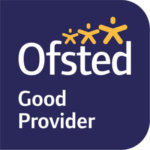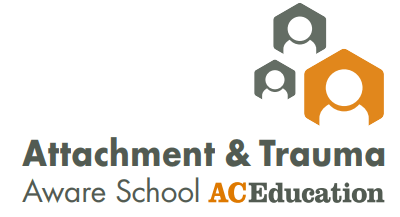Personal, Social, Health and Economic
The Health Education and Relationships Education aspects of PSHE (personal, social, health and economic) education was made compulsory in all primary schools in September 2020.
The Department for Education published Statutory Guidance for Health Education, Relationships Education and RSE.
It ensures that every child is guaranteed a PSHE education that covers mental health and wellbeing, physical health (including healthy lifestyles and first aid) and learning about safe, healthy relationships, including understanding consent and negotiating life online.
Life to the Full
At St Catherine’s, we are committed to delivering a comprehensive Relationship and Health Education (RHE) curriculum through the Life to the Full programme produced by Ten Ten. This programme is thoughtfully supplemented with additional resources to ensure good coverage. By using this approach, our staff and parents are able to collaborate to create a holistic educational experience that empowers children to truly ‘live life to the full’ (John 10:10).
The curriculum is enriched with a diverse array of creative resources designed to engage, inform, and inspire not only children but also their families and our staff. These resources include interactive video content, story-based activities, and original worship music, all complemented by a variety of teaching tools and a dedicated programme of classroom prayers.
Importantly, the RHE curriculum is fully inclusive, recognising and celebrating the diverse family structures within our community. It affirms the dignity of each individual, reflecting the belief that all are created and cherished by God.
Structure of the programme:
Our RHE curriculum is designed to equip students with essential knowledge and skills for their personal development. The programme adopts a spiral curriculum approach, ensuring that as children progress through the years, their learning evolves and deepens. Each stage builds upon the last, allowing students to revisit and expand their understanding of interpersonal relationships, emotional well-being, and physical health in an age-appropriate manner. Through engaging and relevant content, we aim to foster a safe and inclusive environment where students feel empowered to navigate their relationships and health choices confidently.
Module One: Created and Loved by God explores the individual. Rooted in the teaching that we are made in the image and likeness of God, it helps children to develop an understanding of the importance of valuing themselves as the basis for personal relationships.
Module Two: Created to Love Others explores the individual’s relationship with others. Building on the understanding that we have been created out of love and for love, this Module explores how we take this calling into our family, friendships and relationships, and teaches strategies for developing heathy relationships and keeping safe.
Module Three: Created to Live in Community explores the individual’s relationship with the wider world. Here we explore how human beings are relational by nature and are called to love others in the wider community through service, through dialogue and through working for the Common Good.
EYFS:
In Me, My Body, My Health, children are encouraged to understand their bodies, recognise physical changes, and make healthy choices, encouraging lifelong healthy habits.
In Emotional Well-Being the focus is on how feelings are expressed, allowing children to develop skills in managing emotions, resilience, and empathy towards others.
In Life Cycles, learners engage with the concept of growth, development, and the changes that occur in living things, instilling a sense of curiosity and respect for nature.
In Personal Relationships the focus is on the importance of building positive connections with peers and adults, emphasising cooperation, communication, and conflict resolution skills.
In Keeping Safe, children learn about personal safety, including understanding boundaries, recognising unsafe situations, and the significance of seeking help from trusted adults.
In Living in the Wider World they are equipped with an awareness of diversity, an appreciation of different cultures, and what community and respect for others is, alongside encouraging responsible citizenship.
KS1:
Me, My Body, My Health: Pupils in Years 1 and 2 begin by learning the names of body parts, understanding the differences between boys and girls, and recognising that their bodies are good and unique. They are introduced to the importance of personal hygiene (e.g. brushing teeth, washing hands), healthy eating, physical activity, and sufficient sleep.
Emotional Well-Being: Children are taught to name and understand a wide range of feelings, recognise how others may feel differently, and begin to manage their emotions with support. They learn simple strategies for calming down and how to ask for help when feelings become overwhelming.
Life Cycles: In Year 1, pupils learn about the stages of life from birth to death. In Year 2, they explore how babies need care and attention, and begin to understand how people grow and change.
Personal Relationships: Pupils identify special people in their lives, understand the importance of kindness and forgiveness, and recognise what makes a good friend. They also begin to understand that bullying, including teasing, is wrong and hurtful.
Keeping Safe: Lessons cover recognising safe and unsafe situations, the importance of saying “no,” and who trusted adults are. Pupils also learn how to stay safe online and about privacy, including the difference between secrets and surprises.
Living in the Wider World: Children explore the different communities they belong to, learn to appreciate similarities and differences in others, and are introduced to environmental responsibility, simple money skills, and local/global celebrations.
Lower KS2:
Me, My Body, My Health: Children in Years 3 and 4 explore self-confidence and body respect, understanding how their physical differences are part of God’s plan. They learn about healthy lifestyles, oral hygiene, balanced diets, and begin learning about puberty and the changes it brings.
Emotional Well-Being: Pupils build on previous learning to understand the complexity of emotions and how feelings may vary in intensity. They learn coping strategies for change, loss, media pressure, and transitions between school stages. Gratitude and positive thinking are encouraged.
Life Cycles: Teaching includes early discussions around puberty—what it is, when to expect it, and how it fits into the human life cycle. Children begin to reflect on how they have already grown and changed.
Personal Relationships: Pupils learn about different types of relationships, including family diversity, and how to manage peer pressure and conflict. They explore the qualities of healthy friendships and understand the difference between inclusion and exclusion.
Keeping Safe: Topics include recognising safe and unsafe physical contact, identifying early warning signs of danger, and learning basic first aid. Pupils also learn about the impact of smoking, alcohol, and drugs, as well as safe internet use.
Living in the Wider World: Children explore democracy, rules, responsibilities at home and school, Fairtrade, and ethical choices. They also consider aspirations and begin setting personal goals, while learning how decisions can impact others and the environment.
Upper KS2:
Me, My Body, My Health: Pupils in Years 5 and 6 study puberty in detail, including menstruation and personal hygiene. The children explore how to make positive health choices regarding food, exercise, sleep, and about substances like tobacco and alcohol and legal and illegal drugs in more detail. They are encouraged to respect their bodies and those of others.
Emotional Well-Being: Children develop emotional literacy, learning about self-talk, mental health, resilience, empathy, and how to navigate growing responsibilities and changes. They learn strategies to manage stress and transitions, including moving to secondary school.
Life Cycles: Teaching in Year 6 covers how a baby grows and develop in the womb.
Personal Relationships: Lessons cover consent, bodily autonomy, and recognising unhealthy relationships (including forced marriage and FGM). Pupils learn how to maintain respectful, trusting relationships both online and offline.
Keeping Safe: Pupils revisit and deepen learning about online safety, types of abuse, cyberbullying, and the legal and moral importance of seeking help. They learn about managing peer pressure and risky situations, and how to make safe, informed decisions.
Living in the Wider World: Children explore media literacy, career options, stereotypes, money management, and social justice through Catholic Social Teaching. They learn how democratic systems work and reflect on their aspirations and role in society.
Barnet Schools Wellbeing Programme
The content of our PHSE is based on the Barnet Schools Wellbeing Programme which aims to:
- Develop confidence and responsibility to make the most of their abilities;
- Prepare children to play an active role as citizens in the in school and the wider community;
- Support the children’s understanding of how to live a healthy lifestyle;
- Support children with how to make good relationships and learn to respect differences between people.
- Prepare children for the opportunities, responsibilities and experiences of modern life.
KS1 – During key stage 1 children learn about themselves as developing individuals and as members of their communities, building on their own experiences and on the early learning goals for personal, social and emotional development.
KS2 – During key stage 2 children learn about themselves as growing and changing individuals with their own experiences and ideas, and as members of their communities.
Why is it important?
Taking part in Healthy Schools London (HSL), and working successfully through the tiered awards, enables us to directly support the health and wellbeing of our children and staff. As a school community we feel there are so many positive outcomes:
- Increased amount of opportunities that children and young people have to be physically active in and out of schools
- Increased participation of children and young people in physical activity in and out of school
- Improved links between schools and communities that promote physical activity
- Increased school meal uptake including free school meals
- Improved children and young people’s access to healthy packed lunches and snacks throughout the school day.
Behaviour and Equality
St. Catherine’s policies for Behaviour and Equality reflect the importance we place upon these aspects of our curriculum and in our day to day dealings with both children and adults, equal opportunities and inclusive practice are always at the forefront of everything that we try to do.
The school celebrates in particular the achievements of children who demonstrate kindness and friendship and places due emphasis on the importance of developing good relationships and respecting the differences between people, both of which are an essential part of life and learning.
Click here to see our latest PSHE activities



